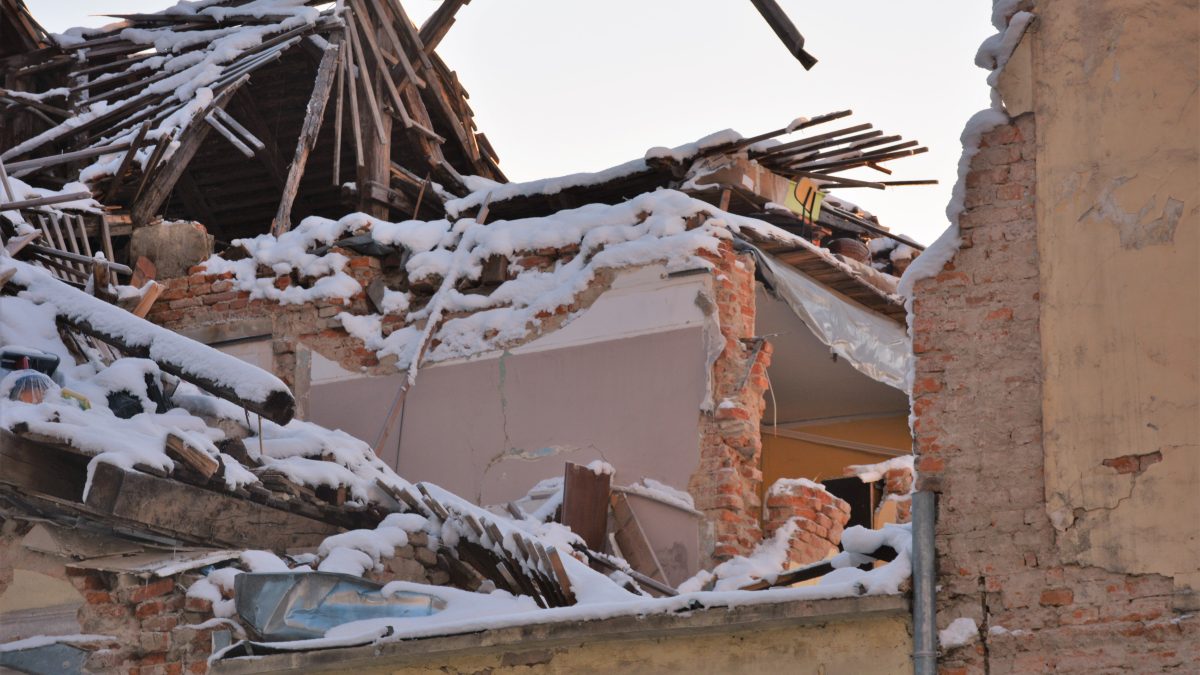Devastating earthquakes striking Croatia last year, especially Sisak – Moslavina County, claimed human lives, injured dozens and damaged several thousand buildings and houses, many to the point of destruction, making them unusable. Due to their powerful impact on people’s physical and mental health, housing, access to services and on their ability to fulfil other basic needs these events, undeniably, represent a serious human rights challenge.
The same was true in 2014, when the East of Croatia was hit by catastrophic flooding. A year later, the Office of the Ombudswoman produced a detailed analysis of its impact on human rights and issued recommendations with the aim of improving the disaster-response system. Both were submitted to the Croatian Parliament in the form of the Special Report on Human Rights in the Context of the Flood-Caused Catastrophe in the Vukovar – Srijem County.
The Report recommended that the Parliament:
- Prescribe by law the duty of the competent bodies to create and maintain in a timely manner comprehensive and thorough official records of all affected persons and their basic needs. This would facilitate the planning and provision of various types of assistance: medical, legal, psychological, social, humanitarian and other, as well as the tracking of the current status of each of the affected individuals and would contribute to the prevention of their additional traumatising.
- Prescribe clear and transparent criteria and the manner of humanitarian and financial aid distribution with the aim of preventing possible abuse and irregularities, for the sake of both the affected persons, as well as the citizens who selflessly provide donations and expect for them to reach those in need.
- Establish standards for collective temporary accommodation such as container settlements and prescribe the spacial standards, the amenities that the settlements need to offer and other important factors, as well as take into account the specific needs of various vulnerable groups.
- Create the records of and provide assistance to everyone whose basic living conditions have been worsened due to natural disasters (i.e. losing access to drinking water), as well as those who chose to house the evacuated persons in their own homes, thus demonstrating high levels of solidarity, while at the same time taking on a large commitment and a high degree of responsibility.
- Set reconstruction priorities in line with the needs of the affected population. The homes of the families with children and of the other vulnerable groups in temporary accommodation should be placed at the top for the priority lists. This recommendation was motivated by the situation on the ground when, following the floods, there were cases of uninhabited houses being reconstructed before those owned by families with children and by older persons living in temporary container settlements.
- Establish regular monitoring of the work of the companies in charge with the reconstruction and ensure the coverage of the electricity and other reconstruction costs by the state budget.
Unfortunately, the Report was not supported by the Parliament, which reduced the probability of the recommendations being implemented and the disaster-response system being better prepared for the future events, such as the 2017 fires affecting the city of Split and the destructive 2020 earthquakes.
More information is available here (Croatian language):
and here (English language):
Human Rights and the COVID-19 Pandemic


